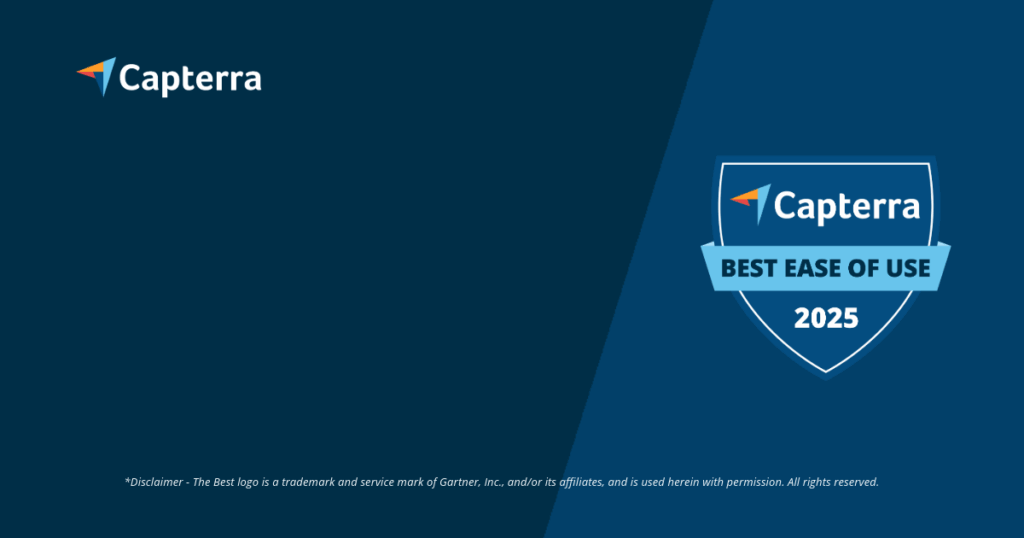The digital transition in construction: Why you can no longer do without effective software
To be honest, the construction industry is facing quite significant challenges: cost pressure is rising, projects are becoming increasingly complex, and digitalization is knocking loudly at our door. To remain competitive, it is a effective construction management software is no longer optional, but simply mandatory. It helps companies optimize processes, improve communication, and complete projects on time and within budget. In this article, we want to take you into the world of construction management software and show you how to find the right solution for your company. Join us to discover how you can elevate your construction projects with modern technologies and set the course for sustainable success. We at Valoon GmbH understand all too well how important it is to simplify data collection and processing and sustainably improve the flow of information between field and office.
- The construction industry faces significant challenges such as cost pressure, increasing project complexity, and the unstoppable advance of digitalization.
- A effective construction management software is no longer an option, but a necessity to remain competitive and optimize processes.
- It assists companies in improving communication, completing projects on schedule and within budget, as well as simplifying data collection and processing.
- Modern technologies elevate construction projects to a new level and lay the groundwork for sustainable success in the industry.
Mastering the challenges of modern construction management— but how?
Modern construction management is a true multitasking field with many complex tasks and potential pitfalls. Delays and cost overruns are unfortunately often the order of the day, often caused by insufficient coordination, inadequate planning, or inefficient communication. Additionally, the shortage of skilled personnel further increases the pressure on existing teams. Without a effective construction management software it becomes increasingly difficult to maintain an overview, optimally allocate resources, and ensure the usual quality standards. The necessity of managing a flood of documents and facilitating seamless information exchange between numerous project stakeholders—from architects to foremen to subcontractors—is also a real hurdle. The process optimization through construction software, especially through an effective construction management software, is therefore a crucial factor for success.
Why effective software solutions are essential today
Effective software solutions are the answer to many of these challenges. They enable a centralized data management, take routine tasks off your plate, and create transparency across all project phases. A effective construction management software not only supports you in planning and controlling but also in documentation and communication. The result? A significant increase in efficiency, as information is available faster and decisions can be made based on a solid data basis. The digital transformation, driven by the right construction software, allows construction companies to streamline their operations and refocus on their core competencies. The ability to respond quickly to unforeseen events and proactively manage risks is substantially improved by the use of such systems, especially through an effective construction management software, ultimately leading to a reduction in construction defects and costs .Construction management software: What is it and why is it so important for the construction industry?
What exactly is construction management software? Think of it as a specialized tool designed to plan, control, monitor, and optimize the complex processes in construction projects. It covers a wide range—from the initial project idea through execution to handover and warranty. Core functions typically include project planning, cost control, document management, task management, and meaningful reporting. A effective construction management software consolidates these functions often on a central platform to ensure a seamless flow of information and avoid data silos. The real significance of such software, especially when it is a effective construction management software , lies in its ability to create transparency and foster collaboration among all project stakeholders. For us at Valoon GmbH, simplifying these processes is a priority, as we want to keep the barriers to digitalization as low as possible.
The benefits at a glance: More efficiency, lower costs, better communication
The use of a effective construction management software comes with a whole range of benefits that directly impact your project success. Here are the key points summarized:
- Increase in efficiency: By automating routine tasks, centralizing data, and optimizing workflows, you save valuable time and resources. Think, for example, of a mobile project management app for construction, which allows data to be collected directly on-site.
- Cost reduction: More accurate calculations, better control of actual costs, and early detection of deviations help you adhere to budgets and avoid unnecessary expenses. A effective construction management software helps you identify savings potentials and reduce rework through improved quality control.
- Improved communication and collaboration: A central platform for all project information greatly facilitates the exchange between office and construction site as well as with external partners. This minimizes misunderstandings and accelerates decision-making processes.
- Increased transparency and control: Project progress, costs, and risks are traceable at any time. This enables proactive management and lays the foundation for informed decisions.
All these benefits lead to a higher project quality and more satisfied customers.
Target audiences: Who actually benefits from construction management software?
Construction management software is by no means only for large construction corporations. It offers advantages for a wide spectrum of stakeholders in the construction industry. Construction companies of all sizes benefit from optimized processes and better cost control. Architects and engineers use the software for plan coordination, defect management, and documentation. Project developers and builders gain more transparency over project progress and can manage risks better through a effective construction management software . Companies with many employees in the field or at decentralized locations—like those often found in the construction industry, crafts, property management, maintenance & repair, and facility management—benefit from simple and efficient communication and data processing solutions. An example of this is a construction site app. The scalability of many solutions, especially with a effective construction management software, also allows smaller companies to benefit from the advantages of digitalization.Feature check: What features should modern construction management software have?
Modern construction management software comes equipped with a wealth of features aimed at making your construction projects more efficient and transparent. A effective construction management software should definitely cover core areas such as project and schedule planning, cost control, document management, and task management. Crucial for success is how seamlessly these functions interact. Imagine being able to generate tasks directly from a schedule or cost changes immediately reflecting in the budget. User-friendliness also plays a significant role, as only a effective construction management software, that is enjoyable to use, will realize its full potential. We at Valoon GmbH place great importance on an intuitive operation to minimize training efforts and promote quick acceptance within the team.
- Project and schedule planning: This function is the backbone of every construction project and includes tools such as Gantt charts, the critical path method, and resource and capacity planning to create realistic and adaptable schedules.
- Cost control and budget management: Allows for the precise recording of actual costs in real-time, their reconciliation with planned costs, budget monitoring, and variance analyses for financial stability.
- Document management and collaboration: Provides a central document repository with versioning, mobile data collection (e.g., photo documentation), and ideally seamless integration of messaging services to enhance the flow of information.
- User-friendliness and seamless integration of functions: An intuitive operation and smooth interplay of all modules are essential for acceptance and full benefit from the software.
Project and schedule planning: The A and O for every construction project
A solid project and schedule planning is the backbone of every successful construction project – we can surely all agree on that. A effective construction management software provides really powerful tools for this. Gantt charts, for example, visualize the project flow and show dependencies between individual processes, while the critical path method helps identify time-sensitive tasks. Another important aspect is resource management, which allows planning and allocation of personnel, machinery, and materials. Capacity planning ensures that sufficient resources are always available to avoid bottlenecks. A good project management software for construction enables you to create realistic schedules and dynamically adapt them to changing conditions.
Cost control and budget management for financial stability
Adhering to the budget is one of the main goals in construction management. A effective construction management software supports you through precise cost control and transparent budget management. A effective construction management software enables the recording of actual costs in real-time and their direct reconciliation with the planned target costs. This means deviations can be detected early, allowing you to take corrective actions in time. Budget monitoring and variance analysis provide valuable insights for the financial control of your project. Some systems even offer interfaces for accounting to further automate and simplify the cost tracking process. The ability to retrieve up-to-date financial figures is essential for informed decisions.
Document management and collaboration for seamless processes
Construction projects generate a vast amount of documents—from plans to contracts to protocols. Efficient a document management software for construction is therefore invaluable. A effective construction management software provides a central document repository with versioning, so that all participants always have access to the most current information. Mobile data collection, for instance through photo documentation directly on the construction site, significantly simplifies the documentation processes. A special advantage we offer at Valoon GmbH is the seamless integration of popular messaging services like WhatsApp. This allows your field staff to use familiar tools, while communication is automatically structured and converted into usable project data. This significantly improves the flow of information between field and office.Software comparison: Which solutions for effective construction management deliver on their promises?
The market for construction management software is vast and offers a wide range of solutions for various needs and company sizes. A thorough comparison of construction management software is therefore essential to find the solution that truly fits your needs. Important criteria include not only the functionality but also user-friendliness, integration options, scalability, and of course, price. A effective construction management software should be intuitive to operate and integrate as seamlessly as possible into your existing IT landscape. Below, we take a look at some leading solutions and their specific strengths to provide you with a solid basis for decision-making. Always remember: The “best” effective construction management software is the one that most effectively addresses your specific challenges.
Selected software solutions examined in detail
When selecting a effective construction management software it is helpful to take a closer look at the strengths of individual providers. Here are a few examples:
- PlanRadar: This software, often referred to as cloud-based construction management software excels particularly in digital documentation, communication, and defect management. Mobile data collection directly on digital plans and 3D models is a core feature. PlanRadar is known for its configurability and collaborative platform.
- Bluebeam Revu: Here, the ecosystem is in the foreground, with good connectivity to Microsoft Office, AutoCAD, and cloud services. Bluebeam Revu is strong in PDF-based document editing and management, both as an app and on the desktop.
- NEVARIS Build: Modularity is an advantage, with specific modules for cost estimation (DIN276), work calculations, and project controlling, making it potentially effective construction management software powerful. The support of the openBIM workflow is also noteworthy.
- Capmo: The focus here is on data collection directly on the construction site using a mobile application. Capmo enables the structured collection of tasks, defects, and daily construction reports.
- 123erfasst: This solution particularly targets small businesses and offers features like photo documentation and daily construction reports, often with an attractive pricing model for small teams.
- Fieldwire:Fieldwire focuses on task management and the integration of plans to simplify communication and progress tracking.
- Flexxter: Offers a central construction timeline and uses AI-driven analytics for defect detection and reporting.
These examples illustrate the range of available solutions and underscore the importance of evaluating a effective construction management software based on your own priorities.
Use case scenarios: Which software fits which need?
The choice of the right effective construction management software depends heavily on the specific use case and your business goals. For general contractors, who manage complex projects with many subcontractors, comprehensive solutions with strong project controlling and collaboration functions, such as those offered by NEVARIS Build or Procore, are often suitable. Smaller craft businesses that primarily want to digitize their construction site documentation and time tracking may find solutions like 123erfasst or simpler construction site apps to be a good choice. Companies focusing heavily on defect management and digital plan editing should take a closer look at PlanRadar or Bluebeam Revu. However, if the seamless integration of messaging services and extremely simple operation for field staff is a priority to convert unstructured communication into usable data, then our approach at Valoon GmbH is particularly interesting. It is truly important to analyze your core processes and choose software, ideally a effective construction management software, that optimally supports these and contributes to increased efficiency in crafts through software. Strategically choose: How to find the right construction management software for your companyStrategisch auswählen: So finden Sie die passende Baumanagement Software für Ihr Unternehmen
Selecting the right effective construction management software is a strategic decision that can have far-reaching impacts on the efficiency and success of your construction projects. It’s not about finding the software with the most features but rather the one that best meets your specific requirements, processes, and business goals. A thorough needs analysis is the first and most important step. In doing so, consider not only your current needs but also future developments and growth prospects. The investment in a construction software should be long-term oriented and create real value for your company. We at Valoon GmbH recommend approaching the selection process in a structured manner and critically assessing various options.
- Conduct a needs analysis: Identify the largest pain points in your current processes and define clear goals that your new effective construction management software should achieve. Involve employees from different departments.
- Evaluate functionality and user-friendliness: Prioritize critical features and look for an intuitive user interface and easy operation, ideally tested by a pilot team.
- Check integration and scalability: Ensure that your effective construction management software can be integrated into your existing IT infrastructure and can grow with your company.
- Consider costs comprehensively: Take into account not only licensing fees but also implementation, training, and maintenance costs, and compare different pricing models.
Needs analysis: What requirements does your company really have?
Before you start looking for a effective construction management software a thorough internal needs analysis is essential. Identify the largest pain points in your current processes: Where is information lost? Which tasks are particularly time-consuming? Where are there frequent misunderstandings or mistakes? Define clear goals you want to achieve with the new software, such as reducing rework time by X percent or improving adherence to deadlines. Involve employees from different departments and hierarchical levels in this process to get a comprehensive picture of the requirements. Also, consider what type of project management software for construction best supports your specific project types. This analysis will then form the basis for a detailed requirements catalog.
Functionality and user-friendliness: What matters
Functionality is certainly an important criterion, but quantity is not everything. Prioritize the features that are genuinely critical for your core processes. Overloading software with countless functions that you will never use can hinder acceptance within the team. Instead, focus on an intuitive user interface and easy operation.. A effective construction management software should be designed so that your employees can use it without lengthy training. Ideally, test potential solutions with a pilot team to evaluate user-friendliness in practice. Especially for use on the construction site, a well-functioning mobile project management app for construction is of great importance.
Integration, scalability, and costs: Keep an eye on this
A modern effective construction management software should integrate seamlessly into your existing IT infrastructure. Check if interfaces to other important systems, such as your accounting software or CAD programs, are available. The scalability of the software is also an important aspect: Does the solution grow with your company? Can it be adapted to increasing numbers of users or more complex projects? When it comes to costs, you should consider not just the pure licensing fees but also the implementation effort, training costs, and ongoing maintenance fees. Compare different pricing models (e.g., purchase vs. rental/SaaS) and choose the model that best fits your financial planning. A cloud-based construction management software often offers flexible and scalable pricing models.Successfully implement: How to seamlessly integrate construction management software into your daily work
The successful implementation of a effective construction management software is just as important as selecting the right solution. A well-planned introduction process minimizes disruptions to business operations and maximizes acceptance among your employees. It is crucial to define clear goals from the outset and assemble a dedicated project team to accompany the process. The migration of existing data and the careful configuration of the system to your specific business needs are additional key factors. A process optimization through construction software can only succeed if the software is set up correctly and accepted by users. We at Valoon GmbH support our clients intensively throughout the entire implementation process to ensure a smooth transition.
Step by step to successful implementation – here’s how
A structured approach is key to the successful introduction of your new effective construction management software. The following steps have proven successful in practice:
- Definition of goals and KPIs: Set measurable goals that you wish to achieve with your effective construction management software (e.g., reducing the error rate by 15%).
- Selection of an implementation team: Designate responsible employees from various areas to manage the process and serve as points of contact.
- Data migration and system configuration: Plan the transfer of relevant existing data and customize your effective construction management software to your specific workflows and requirements. This is a critical point for the later use of a construction software.
- Training of employees: Conduct comprehensive training sessions for all user groups. Consider differing levels of prior knowledge and roles within the company.
- Test phase and optimization: Start with a pilot project or test phase to trial the effective construction management software under real conditions and make adjustments as necessary.
- Go-Live and continuous support: After the official launch, it is important to continue offering support to employees and gather feedback for ongoing improvements.
Best practices for optimal use: How to get the most out of it
To maximize the benefit from your effective construction management software , you should consider some best practices. The standardization of processes is an important step. Define clear procedures for data entry, document storage, and task management to ensure consistency and data quality. Regular data backups are essential to prevent data loss, even if many cloud-based construction management software solutions offer this automated. Promote a culture of continuous improvement by regularly soliciting feedback from users and optimizing software usage as well as the related processes. The active use of analytics and reporting features helps uncover areas for improvement and sustainably ensure the success of projects through construction management software .ROI and future trends: How construction management software sustainably boosts your business success
Investing in a effective construction management software is not merely an expense but a strategic step to enhance your competitiveness and profitability. The return on investment (ROI) manifests in various ways—from direct cost savings to indirect benefits like improved customer satisfaction and higher employee productivity. A careful examination of the potential savings and efficiency gains helps quantify the value of the software to your company. At the same time, technology is advancing rapidly, making it important to keep an eye on future trends to benefit long-term from the opportunities of digitalization in construction. The digitalization in construction is progressing relentlessly, and software plays a central role.
- ROI increase: Ein effective construction management software contributes significantly to raising the return on investment by reducing construction costs and defects, improving adherence to schedules, and achieving efficiency gains in administrative processes.
- Future trends in focus: Technologies such as artificial intelligence (AI), Building Information Modeling (BIM), cloud-based solutions, and mobile applications will shape the future for every effective construction management software.
- Data-driven insights: The ability to analyze data and derive actionable insights will be a decisive competitive advantage.
- Long-term competitiveness: Ongoing adaptation to technological developments secures profitability and sustainable success in the digital age of construction.
How construction management software drives up your ROI
A effective construction management software contributes on several levels to increasing your ROI. The reduction of construction costs and defects is an obvious advantage. Through more precise planning, improved coordination, and early error detection, you can avoid costly rework and material waste. Improving adherence to schedules leads to lower contractual penalties and higher customer satisfaction. Equally important is the increase in efficiency and time savings in administrative processes and project management. Automated reports, a central document management software for construction and optimized communication channels significantly reduce manual effort. Your employees can focus on value-added activities, which enhances overall productivity. Research inputs demonstrate that a effective construction management software simplifies the tracking of project costs and allows for detailed time recording, which directly contributes to ROI improvement.
The future of construction management software: AI, BIM, and the cloud
The future of effective construction management software is characterized by intelligent technologies and interconnected systems. Artificial intelligence (AI) and machine learning are increasingly used to predict risks, optimize processes, or automatically detect defects, as seen with Flexxter. The integration of Building Information Modeling (BIM) is another important trend. BIM enables continuous digital modeling of construction projects, enhancing collaboration and data quality. Cloud-based solutions and mobile applications will continue to gain importance, as they provide flexibility, scalability, and real-time access to project data from anywhere. The capability to analyze data and derive actionable insights (Data-Driven Insights), as mentioned with Capmo, will be a decisive competitive advantage. We at Valoon GmbH closely observe these developments to always offer our customers innovative and future-proof solutions – for example, those that enable easy use of messaging services with advanced features like buttons and forms.Overcoming implementation hurdles: How to make software introduction in construction successful
The introduction of new effective construction management software can face various challenges despite clear advantages. It is crucial to recognize and proactively address these potential hurdles early on to ensure a smooth transition and successful utilization. Resistance to change, lack of IT knowledge, or concerns regarding data security are common examples. Open communication, comprehensive training, and involving employees in the selection and implementation process are key to fostering acceptance. Choosing software that prioritizes simplicity and user-friendliness can already alleviate many concerns and make the increased efficiency in crafts through software. considerably easier.
Typical challenges and how to address them proactively
When introducing effective construction management software the following challenges may arise, for which there are proven solutions:
- Resistance to change: Employees often get used to established working methods. Solution: Clearly communicate the benefits that a new effective construction management software brings for each individual and the entire company. Involve key users early on and create positive initial experiences.
- Lack of IT knowledge: Not all employees are equally tech-savvy. Solution: Provide target group-specific training and choose a effective construction management software with intuitive operation. Good support from the provider is also important. A user-friendly mobile project management app for construction can facilitate entry.
- Data security and privacy: Especially with cloud-based construction management software there are often concerns. Solution: Choose providers that meet high security standards (e.g., data storage in Germany, encryption) and have transparent privacy policies. Clarify data sovereignty.
- Integration into existing systems: The new software must harmonize with existing tools. Solution: Check interface compatibility in advance and plan the integration carefully. Open APIs are advantageous here.
- Implementation costs: The acquisition and introduction can be initially costly. Solution: Create a detailed ROI analysis to demonstrate long-term benefits. If necessary, start with a leaner solution and scale later.
By proactively managing these challenges, the introduction of a effective construction management software can become a complete success.Conclusion: With the right software to excellent construction management and sustainable project success – your path to it
In summary, the introduction of a effective construction management software is a crucial step for construction companies to not only survive in today’s competitive environment but to be truly successful and set the course for the future. As we’ve seen, the benefits range from significant efficiency improvements and cost reductions to enhanced communication and collaboration, resulting in higher project quality and increased transparency. Digital transformation is not a temporary trend but a fundamental change in the way work is done in the construction industry. The right effective construction management software wirklich erfolgreich zu sein und die Weichen für die Zukunft zu stellen. Wie wir gesehen haben, reichen die Vorteile von signifikanter Effizienzsteigerung und Kostensenkung über verbesserte Kommunikation und Zusammenarbeit bis hin zu höherer Projektqualität und gesteigerter Transparenz. Die digitale Transformation ist kein vorübergehender Trend, sondern eine grundlegende Veränderung der Arbeitsweise in der Baubranche. Das richtige effective construction management software, tailored to your company’s specific needs, acts as the engine of this transformation. It’s about reducing complexity and simplifying processes so that your teams can focus on what truly matters: delivering excellent construction projects. Yes, the selection and implementation require careful planning, but the long-term benefits far outweigh the initial efforts and secure the success of projects through construction management software.
We at Valoon GmbH have made it our mission to optimize communication and project management through one of the easiest project management software solutions in the world. We understand that especially in the field, the acceptance of new tools depends on their user-friendliness. That’s why we transform everyday messenger communication, such as via WhatsApp, into structured project data, eliminating information overload and the need for complex software training. If you’re ready to revolutionize your construction management and take advantage of a truly effective construction management software solutions that focus on simplicity and efficiency, then now is the perfect time to take the next step.
Contact us today for a personal consultation and find out how Valoon can solve your specific challenges. Register for a demonstration and discover how easy it can be to enter a digitally optimized construction management, supported by a effective construction management software. Start your journey towards more efficient construction projects and sustainable success now. We are incredibly excited to meet you and your company and to jointly unlock the potentials of digitalization for you. Visit our contact page and take the first step – we can’t wait to hear from you!
Our field staff primarily use WhatsApp for project communication. Can construction management software help structure this information better?
Yes, absolutely. Modern construction management software, like that of Valoon GmbH, specializes in automatically capturing everyday messenger communication (e.g., via WhatsApp) and converting it into structured project data. This eliminates information silos and significantly reduces the manual effort for data preparation in the office.
We are a mid-sized construction company. Isn’t construction management software too complex or expensive for us?
Not necessarily. There are solutions that are specifically designed for simplicity and user-friendliness like the software from Valoon. These aim to keep the barriers to digitalization low and often offer flexible pricing models that fit smaller and medium-sized enterprises (SMEs). The focus is on optimizing communication and project management without overwhelming complexity.
How much training effort is typically needed for construction management software, especially for our site employees?
This varies significantly. Solutions that focus on maximal simplicity and the integration of familiar tools such as messaging services can drastically reduce the training effort.When employees can continue using their familiar apps, acceptance is higher and the onboarding time minimal, often only requiring brief introductions.
What are the main benefits of using construction management software for project communication?
The main benefits are improved information availability , as all data is stored centrally, areduction of misunderstandings through clear assignments and traceability, as well as a acceleration of decision-making processes. . The seamless connection between field and office is a key factor here.. Die nahtlose Verbindung zwischen Außendienst und Büro ist hierbei ein Schlüsselfaktor.
Can construction management software really help to reduce project costs and avoid delays?
Yes, through more efficient planning, better resource management, early problem detection and optimized communication, costs can be significantly reduced and schedules better adhered to. The reduction of errors and rework greatly contributes to this.
Our team on site is multilingual. Do construction management software solutions provide support here?
Some advanced systems, including Valoon GmbH’s solution, offer automatic translation features for communication. This can overcome language barriers and significantly facilitate collaboration in international or multilingual teams.
How does construction management software improve data collection onsite compared to traditional methods like notebooks and cameras?
Software enables the direct digital capture of data (e.g., photos, notes, form entries) via mobile devices or integrated messengers. This data is immediately structured, centrally stored, and assigned to the correct project.This avoids media breaks, data loss, and reduces the administrative effort for post-processing.
What to do if our employees have reservations about introducing new, complex software?
Choose software that has a strong focus on user-friendliness and simplicity. Solutions that integrate into existing workflows (e.g., using WhatsApp) have a significantly higher acceptance rate. Clear communication of benefits for each individual and a gradual introduction can also help to reduce resistance.






